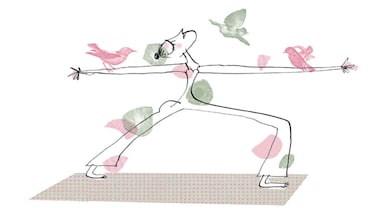- HOME
- /
- Odds and Ends
- /
- Who knew
- /
13 Things You Should Know About Home Security
Points to keep in mind while securing your home.

1. Doors and windows are the most vulnerable parts of your home, be it an apartment or a standalone house. "Video door phones (VDP) can be installed to screen visitors at the main door -- Wi-Fi VDPs allow users to have video calls with visitors even when no one's at home -- and CCTV cameras that monitor the entrances and perimeter of the house. Burglar alarm systems can detect any kind of unauthorized entry in the major entry points that are equipped with sensors," says Mehernosh Pithawalla, vice president and global head at Godrej Security Solutions, Mumbai. For apartments, he recommends a "multi-apartment video door phone, as it offers three tiers of security -- at the gate, in the lobby and in front of the flat". A low-tech solution: an iron grille and a wooden door with a spyhole through which you can observe your callers. Install sturdy, close-built iron grilles on all windows, ventilators and skylights.
2. Don't keep valuables, important documents and large amounts of cash at home. This is what secured bank lockers are for. But if it's unavoidable, invest in lockers with double-walled construction and foolproof locking systems and always insist on safety certifications, especially for bolts and locks, says Pithawalla. Its best not to operate your home lockers in front of visitors.
3. A sign worth posting: BEWARE OF DOG. Burglars hate dogs, not only because they bite but also because they bark, attracting attention. True, Spot can't call the cops, but he can persuade a crook to move on.
4. Never hide the spare key in what you consider discreet hiding spaces -- above the door frame, in the post box or under the mat outside your door. Instead, leave them with a trusted friend or neighbour.
5. The elderly are particularly vulnerable. Many city police departments run special programmes for seniors, especially those who live on their own. "You can sign up for regular police visits, and the cops will do a security assessment of the house, ensure regular patrolling of your area and keep an eye out for suspicious elements. This will also ensure a speedy response in case of an emergency," informs additional DCP (south) Chinmoy Biswal, of Delhi Police.
6. Log on to your city police's website for important emergency numbers such as fire service, police and helplines for senior citizens, women and children. Display this prominently, along with other emergency numbers, next to your landline for easy access.
7. Most city police departments recommend maintaining friendly relations with your neighbours and immediate community. Your neighbours are most likely to notice suspicious activity in and around your house, and report it to the police.
8. Get police verification -- with photographs and address details -- for household help and tenants. "It is the most effective way of screening people and also acts as deterrent. In case of any criminal activity, the police have a starting point for their investigation. Ask for at least two references, verify these independently and call them for a character reference," advises Biswal.
9. If living in an isolated area, make sure all electricity and telephone cables are installed underground. Burglars are most likely to cut these connections before targeting your house.
10. If leaving on a trip, cancel newspaper and grocery deliveries; turn down the telephone's volume; and leave the outside light on. If possible, install a timer that switches on the outside lights in the evenings. Also, inform your neighbours of your absence so they know to keep an eye out. Invest in home cameras that allow live feed of your home to your smartphone, letting you watch over your loved ones remotely.
11. "Install glass break detectors, which raise an alarm when glass is broken, and magnetic reed contacts that show if your door and windows are open or closed. CCTV monitoring systems can both record and send the feed to your mobile phone, tablet or internet browser directly," informs Poneri Amit, who runs a security services company.
12. "When travelling, turn on motion sensors, along with GSM, or global system for mobile communications, controlled hooter. If someone breaks in, the hooter raises an alarm and the controller sends an automated voice response to pre-designated phone numbers. The entire system can be easily armed and disarmed by the owner on the go," advises Amit.
13. "Resident welfare associations should train security guards to maintain records of all visitors and keep an eye out for vehicles that do not belong to residents but are parked inside the compound for longer periods. Install CCTV cameras at all entry points, lifts, parking areas and vulnerable spots of the residential complex, and install intercom lines for quick communication," says Biswal.
Sources: delhipolice.nic.in, mumbaipolice.maharashtra.gov.in, bcp.gov.in, kolkatapolice.gov.in
-- Adapted from an article published in Reader's Digest, USA, by Michelle Crouch






